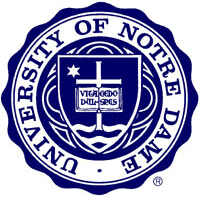About the Project
Project Description
We are currently looking for a PhD student interested in applying mathematics, biostatistics, machine learning and geocomputation science to modelling disease transmission systems. We are looking for a highly motivated candidate who is interested in applying biomathematics, complexity science, spatial analysis, and advanced data-driven geoAI methods to a major topic area, viz. gaining a better understanding of the spatial transmission dynamics, ecology, and control of human diseases. Applicants should have interests and proficiency in one or more of the following: mathematics, statistics, population biology, geoAI methods, and computer programming. Experience with computer science methods and software engineering will be an added advantage.Our current research interest ranges from transmission modelling studies of the major vector-borne diseases, such as lymphatic filariasis, onchocerciasis, malaria and dengue, to environmentally mediated diseases (melioidosis, cholera) and chronic diseases, such as diabetes. This project will involve implementing models for one of these diseases using either the STEM or TerraME spatio-temporal modelling platform. Successful candidates will also work with our country and other international health partners in data acquisition and in model-driven policy analyses. For an additional perspective on this research, candidates are encouraged to visit our lab website at http://sites.nd.edu/michael-lab/
Contact details
Interested candidates are welcome to contact Prof. Michael directly by email: [Email Address Removed]. Please attach a resume/CV and a brief cover letter to the application email.
Funding Notes
Support for graduate studies includes an annual stipend, benefits and a tuition waiver, and generally comes from grants awarded to the group by the National Institutes of Health, the Bill and Melinda Gates Foundation, and the National Science Foundation. The University of Notre Dame, located in Notre Dame, Indiana, USA, is an internationally recognized research and teaching institution renowned for its academic excellence, world-class faculty, and commitment to cultivating a diverse intellectual community.
References
1. Parham, P.E., Waldock, J., Christophides, G.K., Hemming, D., Agusto, F., Evans, K.J., Feffema, N., Gaff, H., Gumel, A., LaDeau, S., Lenhart, S., Mickens, R.E., Naumova, E.N., Ostfeld, R.S., Ready, P.D., Thomas, M.B., Velaxo-Hernandez, J. & Michael, E. (2015) Climate, environmental and socio-economic change: weighing up the balance in vector-borne disease transmission. Phil. Trans. R. Soc. B 370, 20130551.
2. Michael, E. & Singh, B.K. (2016). Heterogeneous dynamics, robustness/fragility trade-offs, and the eradication of the macroparasitic disease, lymphatic filariasis BMC Medicine 14:14. Doi 10.1186/s12916-016-0557-y.
3. ten Bosch, Q.A., Chadee, D.D., Singh, B.K. & Michael, E. (2016). The role of serotype interactions and seasonality in dengue model selection and disease control: insights from a Pattern Matching Approach. PloS Neglected Tropical Diseases 10(5): e0004680.
4. Michael, E, Singh, B.K., Mayala, B.K., Smith, M.E., Hampton, S. & Nabrzyski, J. (2017). Continental scale data-driven predictive assessment of eliminating the vector-borne disease, lymphatic filariasis, in sub Saharan Africa by 2020. BMC Medicine 15, 176.
5. Chalghaf, B., Mayala, B., Chemki, C., Chilf, S., Ghawar, W., Bettaieb, J., Benié, G., Michael, E. & Ben Salah, A. (2018). Ecological niche modeling predicting the potential distribution of leishmaniasis vectors in the Mediterranean Basin: impact of climate change. Parasites and Vectors 11, 461.

 Continue with Facebook
Continue with Facebook

